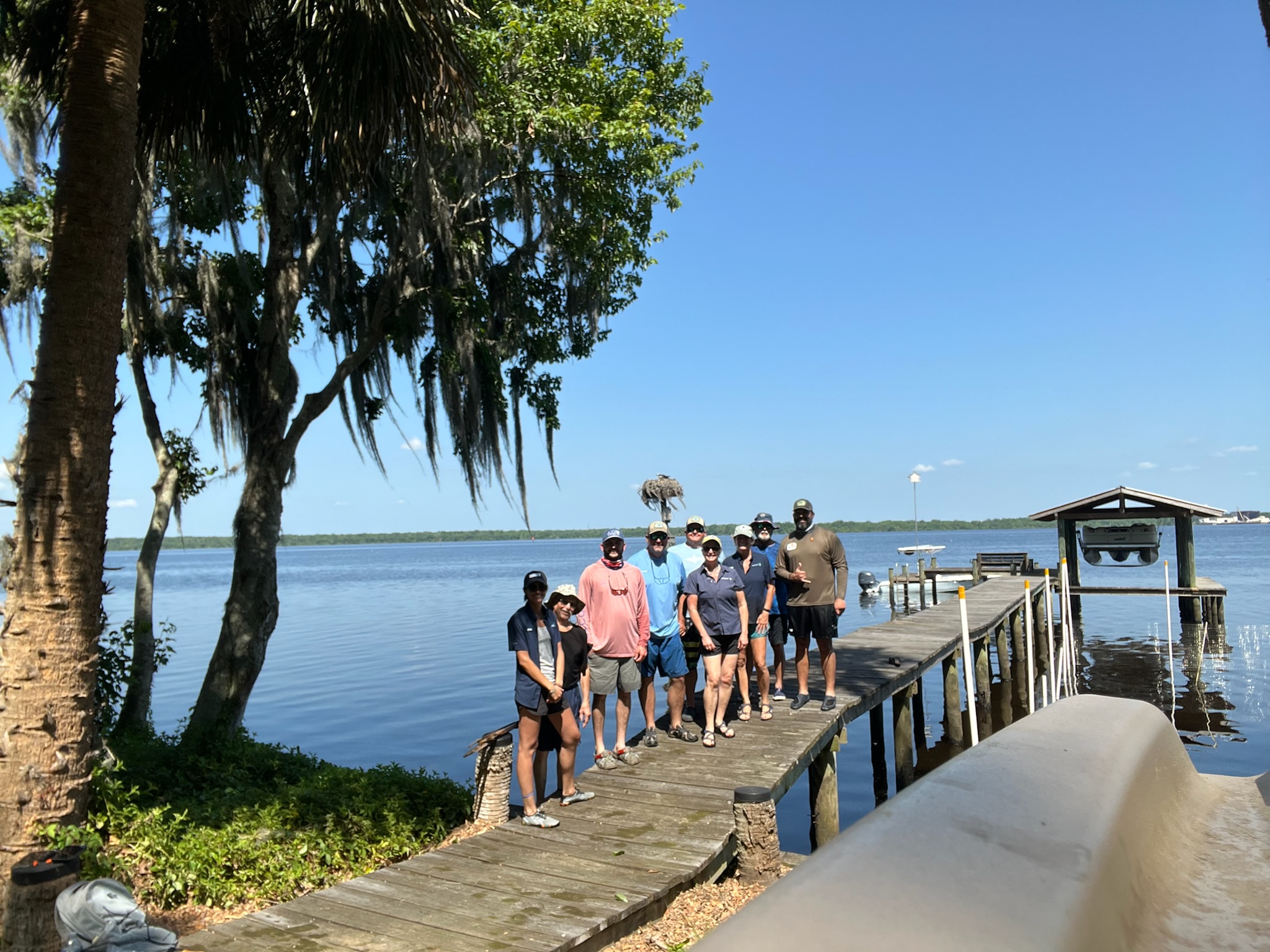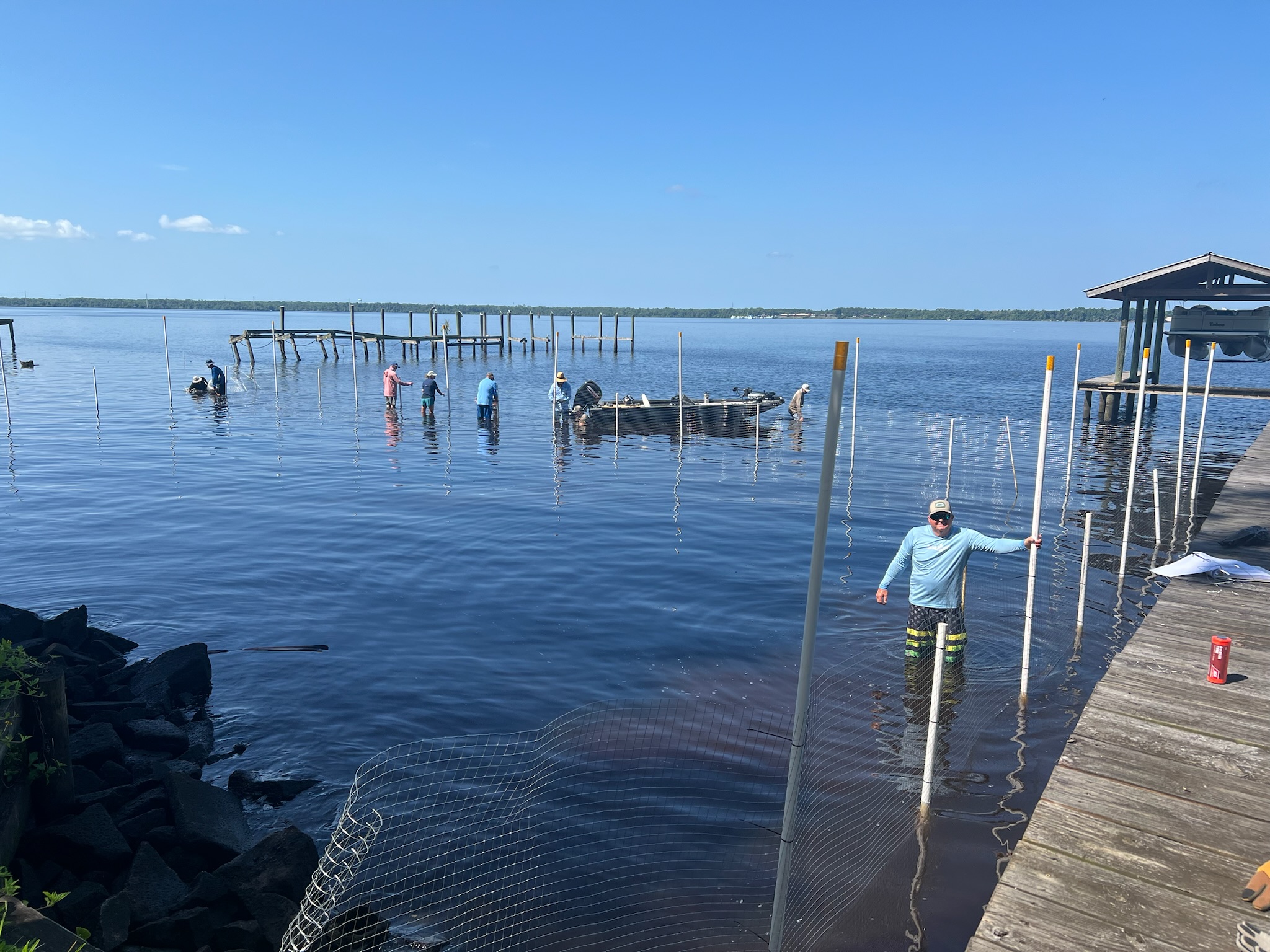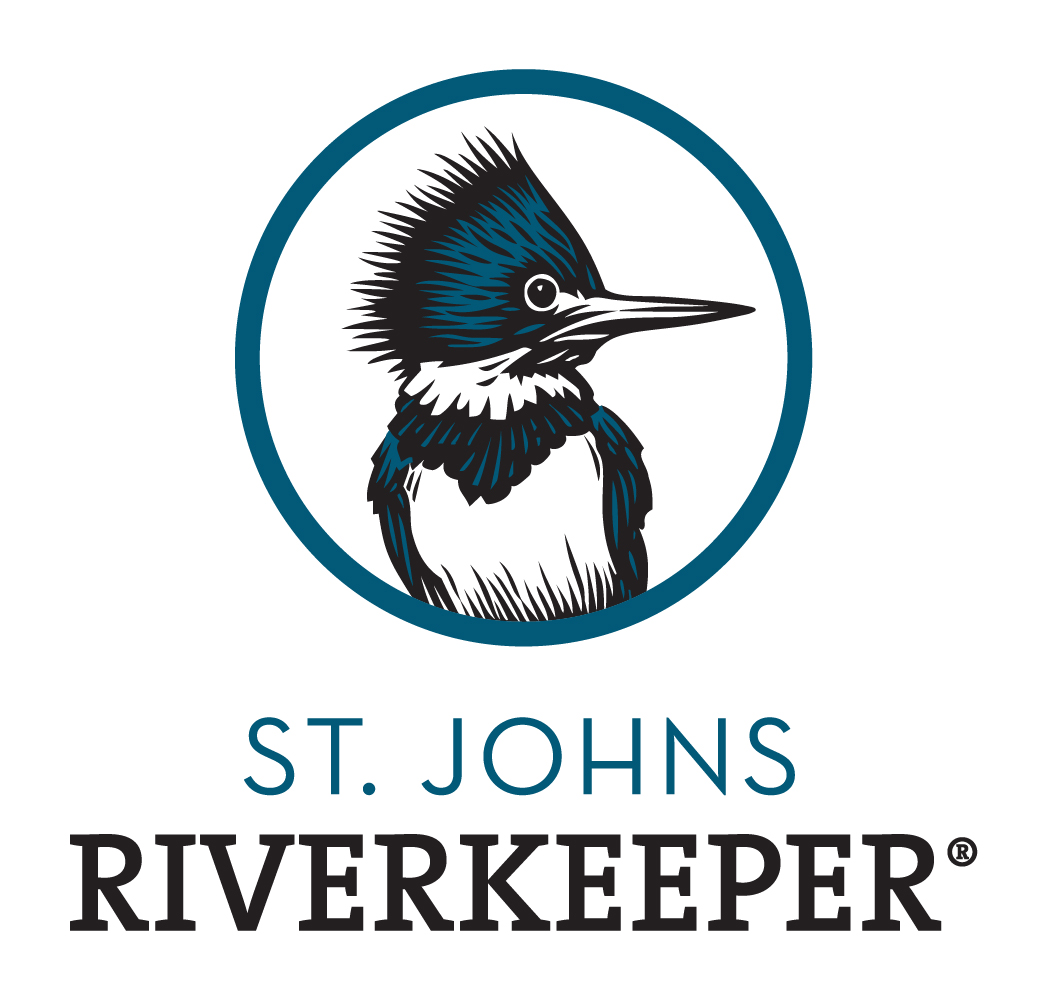In preparation of Year Three of the SAVe Our River’s Grasses Expedition, St. Johns Riverkeeper is Forging New Partnerships
 From April 28 to May 2, 2025, St. Johns RIVERKEEPER (SJRK) is joining forces with Coastal Conservation Association (CCA) Florida and Mighty River Recovery (MRR) as we prepare for the third year of the SAVe Our River’s Grasses Expedition, seeking answers and solutions to the massive loss of submerged aquatic vegetation (SAV) that has occurred in the St. Johns River in recent years.
From April 28 to May 2, 2025, St. Johns RIVERKEEPER (SJRK) is joining forces with Coastal Conservation Association (CCA) Florida and Mighty River Recovery (MRR) as we prepare for the third year of the SAVe Our River’s Grasses Expedition, seeking answers and solutions to the massive loss of submerged aquatic vegetation (SAV) that has occurred in the St. Johns River in recent years.
“Submerged river grasses are critical to the health of our river – providing biofiltration, fish habitat, flood protection and more. Without it, the St. Johns could turn into a dead zone which is absolutely unacceptable,” urged Lisa Rinaman, the St. Johns Riverkeeper.
Enclosure Installation
The week of April 28, our partnership of advocates, scientists, anglers and riverfront homeowners will install 10 protective SAV enclosures at our research sites along an 80-mile stretch of the river between Doctors Lake (Clay County) and Lake George (Putnam County.)
The enclosures protect budding grasses from fish and other animals that eat or uproot the grass before it has a chance to mature. The goal is to reduce this “grazing pressure” from small SAV plots, temporarily, so we can monitor SAV growth and water quality both inside and outside of the protective fences and compare findings. This expanded research is designed to provide us with insight and urgently needed solutions to restore this vital habitat.
“We’re very excited to join our friends at St. Johns Riverkeeper in constructing ten vegetation enclosures throughout the lower St. Johns River. These units are a crucial first step in restoring vital fish and wildlife habitat. Even more, the enclosures will allow further study and a transparent look into issues causing vegetation declines, helping us advocate for a healthier, more resilient St. Johns River in the future. We’re anxious to get to work!” explained Joe Balog, founder of Mighty River Recovery.
 SAV Protective Enclosure Installation is underway for the following sites:
SAV Protective Enclosure Installation is underway for the following sites:
- Monday, April 28: Forrester Point, Mays Cove, Jenerson Point (Putnam County)
- Tuesday, April 29 – Drayton Island, Georgetown North, Georgetown South (Putnam County)
- Thursday, May 1: Doctors Lake (Clay County); Fruit Cove (St. Johns County)
- Friday, May 2: Orangedale, Colee Cove (St. Johns County)
SAVe Our River’s Grasses Expedition
On May 27-30, we will return to these sites to collect data. This will be the first of three four-day field visits in 2025, kicking off year three of the SAVe Our Rivers Grasses Expedition. Along this 80-mile stretch of the river between Doctors Lake and Lake George, we will measure growth patterns of the remaining grass beds and conduct water quality testing to determine what must be done to restore this vital habitat.
This is the third year of SJRK’s five-year commitment to investigate the case of the lost St. Johns River submerged grasses. We’re working with our river communities and state and federal agencies to do everything we can to SAVe Our River’s Grasses.
 During each field visit, we collect more data and continue our conversation with homeowners, anglers, river enthusiasts, business owners and scientists to better understand our river and its significance to our communities, our economy and our lives.
During each field visit, we collect more data and continue our conversation with homeowners, anglers, river enthusiasts, business owners and scientists to better understand our river and its significance to our communities, our economy and our lives.
Field visit findings, data collected, next steps, potential solutions and opportunities, testimonials from local residents and more from SJRK’s first two years of the Expedition have all been compiled on the SAVe Our River’s Grasses webpage, available for the public to view.
Thanks to the generous support of CCA and MRR, we are able to expand our efforts, fueled by a shared desire to save the river grasses that provide critical habitat to our recreational and commercial fisheries.
SJRK, CCA and MRR are dedicated to collectively do all we can to take meaningful action toward a healthier river ecosystem.
We Will Make a Difference, Together
Together, we can make a difference – for the river and for us all! Locals who love the St. Johns River can support this effort directly to impact our river’s health for the better.



